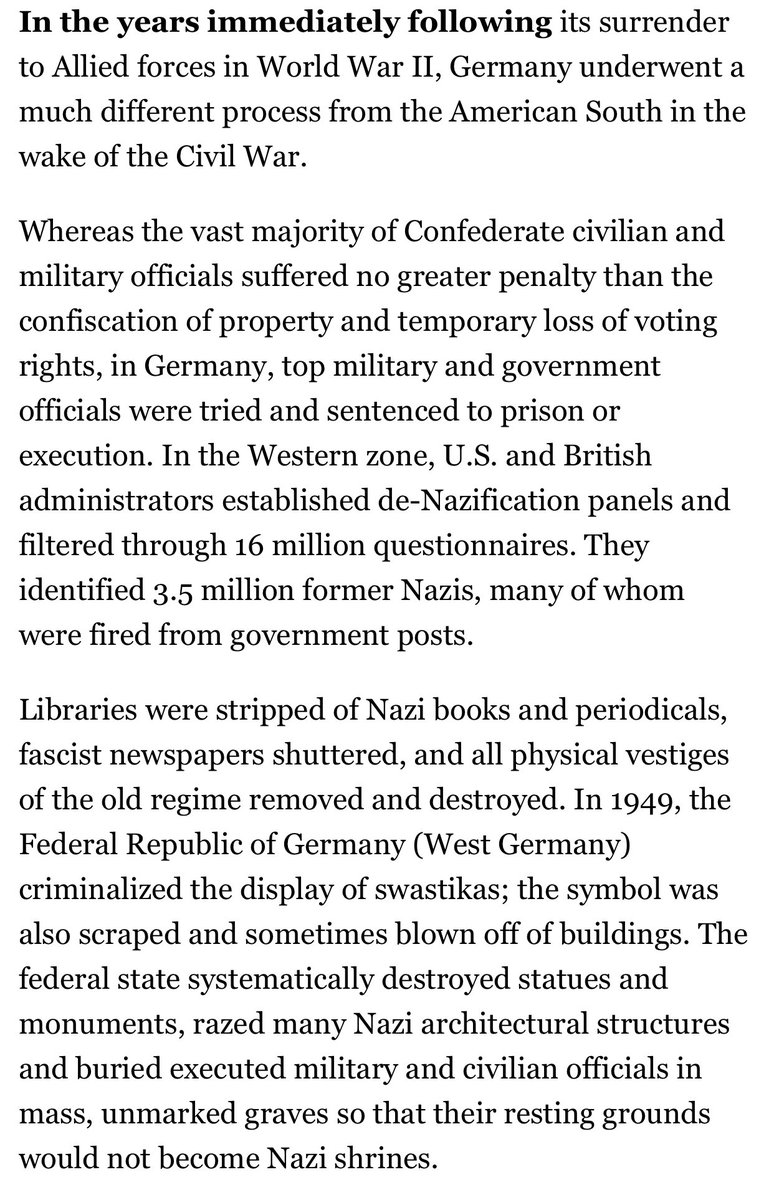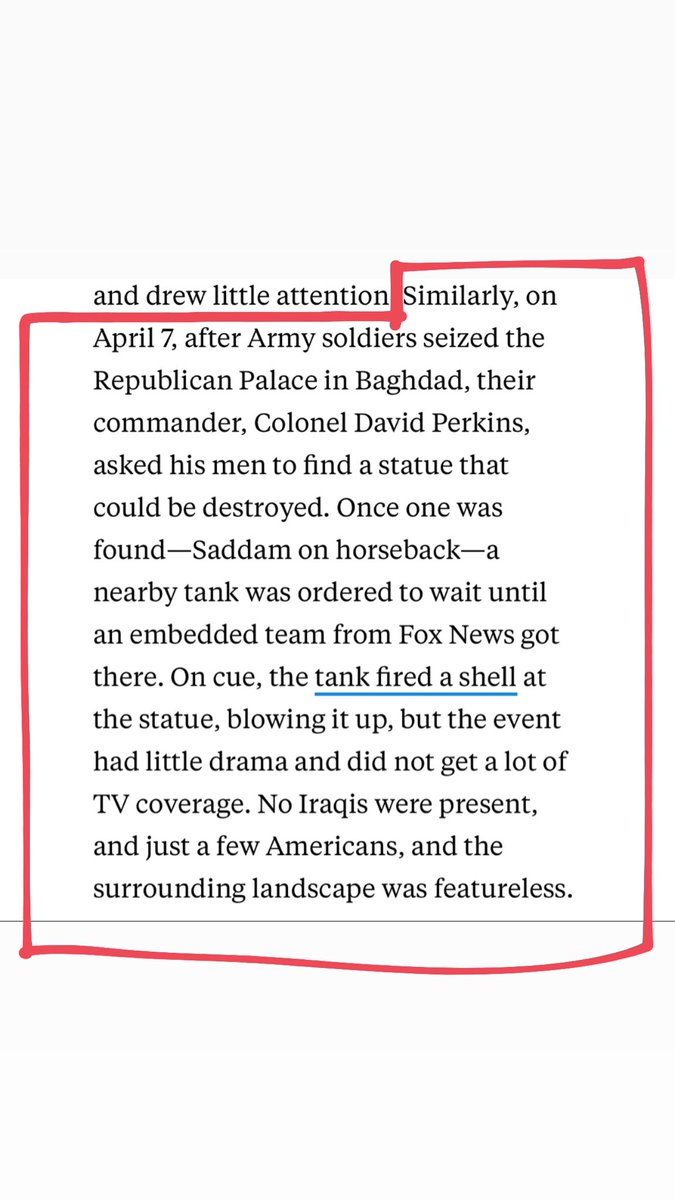1. The debate of statues being ripped down is an important one. When a statue is erected, who or what makes the decision that a certain individual is worth immortalising? How much of society does that individual represent? And who commisions it?
Does the raising of a statue protect it for all time? Or should there be the ability to have an iterative assessment on the statue’s position in society depending on how society is evolving? What should the process be - mob rule isn’t the answer.
This from 2017 is insightful. This idea is crucial👇🏼
´If just removing statues and icons doesn’t force a change in outlook ... and refusing to be honest about their meaning, almost ensures that the country won’t fully confront its past.’
politico.com/magazine/story…
Germany dealt w/ denazification by sentencing top military/government officials to prison or execution. Confederate civilian/mil officials merely had property/voting rights taken away.
History also says much about US political accountability today - it doesn’t exist

The toppling of Saddam’s statue is used widely in this debate. But the context isn’t widely known.
Saddam’s reign enabled massive persecutions of Iraq’s Shia population & what we saw when the statue came down is years of brutal oppression being vented, or was it?
Actually, it was a USMC M-88 vehicle w/ its crane that did the job w/ few Iraqis present.
propublica.org/article/the-to…
And the idea of toppling or blowing up statues as part of an Psyops Idea was toyed w/ on other occasions by U.S troops. The media being being knowingly or unknowingly a key part of it. As they are now.
propublica.org/article/the-to…

The U.S would benefit from observing European History. The symbolism of toppling statues maybe nothing more than a media opportunity unless a country is prepared to address w/ proper accountability the deep issues at the core. And that starts w/ the President.
End.


